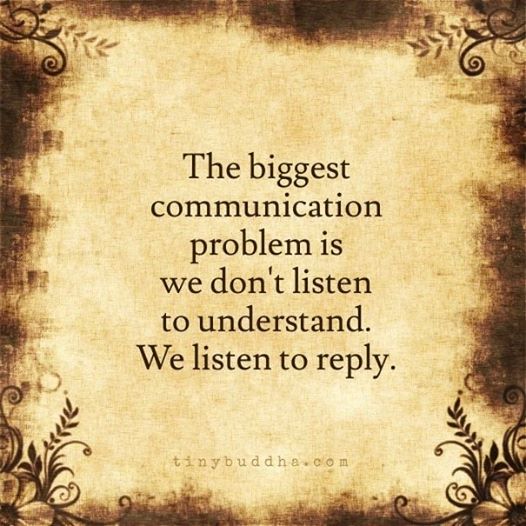What are the obstacles for a positive communication?
Learning effective communication can feel like mastering a new language. A number of ingrained patterns can make the process especially challenging:
• Low Self-Esteem — It is difficult to be in a healthy relationship with someone who has low self-esteem. The person may be so busy wondering what other people think of him/her or feeling unworthy of love that they, consciously or unconsciously, push people away.
• Perfectionism — People often put pressure on themselves to be perfect — to say the right thing every time and create a perfect image of themselves in the minds of others. But authentic relationships aren’t showy; rather, they are defined by honesty and acceptance of self and others, flaws and all.
• Shame — Some people feel a great deal of shame, particularly in early recovery when they begin to face the consequences of their past behavior. Left unchecked, shame can be paralyzing. Shame directs the person’s focus inward, preventing them from listening attentively and being honest, spontaneous and fully engaged in conversation.
• Dishonesty — In active addiction for example, dishonesty not only came naturally but also served a valuable protective function. Lying and manipulating others allowed the compulsive drug use to continue, which at least at the time seemed essential for survival. In recovery, dishonesty is the enemy of effective communication (and of recovery itself). You cannot develop genuine intimacy with others if the relationship is built on dishonesty.
• Lack of Boundaries — people have difficulty establishing healthy boundaries. They may say yes when they mean no; they may trample on the rights of others. It is common for people to divulge too much information too soon and trust others without discernment.
• Aggression/Passivity — In conflicts with others, do you have difficulty finding the balance between saying something overly harsh and not saying anything at all? A lot of people do, especially those who haven’t had much practice coping with anger. You may be overly passive, bottling up your feelings or giving undue weight to other people’s needs; overly aggressive, disregarding other people’s rights and trying to “win” at all costs; or passive-aggressive, trying to accommodate others on the outside but acting aggressively in subtle ways (e.g., saying yes but meaning no). All of these approaches allow conflicts to go unresolved.
Five essential skills for effective communication
Fortunately, communication skills can be learned, and are an area of emphasis in psychotherapy. Some useful tools in early include:
Assertiveness
Positive communication requires people to let go of familiar tactics like manipulation and replace them with assertiveness. This doesn’t mean getting pushy or demanding what you want, but rather approaching others with honesty and straightforwardness to prevent misunderstandings and to protect yourself from being taken advantage of.Assertiveness is having the confidence to say no when needed, and accepting limits set by others. It is taking responsibility for the consequences of your actions while allowing others to own their own feelings and actions. It means doing these things even if they make you unpopular or challenge you to step outside your comfort zone. In some cases, it may mean ending a relationship with someone who repeatedly disrespects your boundaries.The tools of assertiveness include making specific requests, establishing eye contact, refraining from being overly apologetic and using “I feel” statements to avoid blaming others. By setting and enforcing healthy boundaries, you can get your own needs met while still respecting the rights of others.
Positive self-talk
The way you communicate with yourself is just as important as the way you interact with others. Your inner voice may be your worst critic, haranguing you with guilt and shame. By challenging negative self-talk with positive affirmations and praise for each step toward self-growth, you turn this voice into your biggest supporter.
Reading social cues
Some of the most important components of effective communication don’t involve words at all. Often we are left to read between the lines by observing body language, facial expressions and tone of voice if we want to fully understand other people.
Give and take
Relationships are a two-way street. When others listen to you and offer support, you do the same in return. For some people, this concept may require practice along with gentle reminders from loved ones.
Empathy
Empathy is one of the most fundamental human capacities. It involves stepping into someone else’s shoes and trying to understand their thoughts and feelings. Attending self-help support groups can help restore the empathy deficits through sharing stories and lending support and feedback to others.Without these fundamental skills, relationships can be stressful and triggering. A simple misunderstanding can feel like a colossal failure. Although awkward at first, communication skills can be mastered by anyone at any stage of life. Empowerment, confidence and less stress await people who learns to communicate effectively.

